- Home
- Vladimir Nabokov
Vladimir Nabokov: Selected Letters 1940-1977 Page 9
Vladimir Nabokov: Selected Letters 1940-1977 Read online
Page 9
Sincerely yours,
TO: COL. JOSEPH I. GREENE
CC, 2 pp.
957 East State Street
Ithaca, New York
24 August 1948
Dear Colonel Greene,
I have been on the move and your letter took some time to catch up with me—hence the delay. I have now looked through the typescript you have kindly sent me and am absolutely appalled by it. The translation is so bad that were I to check and correct all the blunders and boners in it, it would take me as much time and labor as it would to translate the whole thing anew. My idea was that I would look through the translator's work and assist him in rendering those (not very numerous) passages which might stump a person not familiar with certain modern literary trends or liable to misunderstand allusions to local features of American life. As things stand, however, I would have to revamp almost every sentence.
1) The translator's knowledge of English is vague and he seems to rely throughout on a pocket dictionary. When the pocket dictionary fails him, he is helpless.
2) His German vocabulary is miserably poor.
3) He does not bother about accuracy and is satisfied with any approximative meaning at hand.
4) He has no sense of style. My imagery is absolutely lost upon him. He does not see what I want the reader to see and simply does not understand the literary and scholarly side of the book.
Note please that these observations of mine are based on a perusal of what I would term the easiest portion of the book, I shudder to think what would happen if he were allowed to tackle the Hamlet part.
Although this may clash with the traditional modesty of authors, I want to draw your attention to the fact that my book is a lasting contribution to American literature and the German publisher should be warned not to give it to a hack to tamper with in this way. Insofar as you are including my work in your program, I think it is in your interest as well as in mine to preserve in it those qualities and values which alone bring out the main points of the novel. Why not look for a translator in New York, some German émigré writer (perhaps Mann might suggest somebody), whose English would be adequate to the task? I am not hoping for a translator of genius, but I think I am justified in wanting somebody who would be both a scholar and a talented stylist.
I am returning the typescript with a list of a few typical errors in the first and last pages. I did not think it necessary to go on and devote any more time to the annotation of the blunders (just as numerous) in the rest of the pages.
I have also to say a few words anent the publisher's letter:
1) The titles they suggest are ridiculous (quite in line with the inept translation).
2) The rest of the queries and suggestions are not worth while dealing with at the present moment since there are countless other stumbling blocks which have tripped up the translator (with the publisher not noticing it) but anyway the translator has no idea whatever of what the sentences on pp. 56, 49 and 73 mean. I repeat that when I am given a competent translator to deal with, I shall be delighted to give him every assistance in translating these and other passages which may seem to him obscure.
I am sorry if this will delay the publication of the book but I am sure you will forgive me for being so bitterly frank on a subject which is of the utmost importance to me as the author of the book.1
Very sincerely yours,
I have transferred my school from Harvard to Cornell where I have accepted a professorship in literature.2
TO: EDWARD WEEKS
October 1948
CC, 1 p.
802 E. Seneca St.
Ithaca, N.Y.
Tel. 6834
Dear Weeks,
I have received your letter of September 30 and can only excuse its contents by assuming that you were in your cups when you wrote it. I have never published any story called "The Proud Castle" or "The Professor's Return", as you seem to imagine. I never send editors anything that I consider to be of inferior quality. In fact, the piece1 I sent you is better than those I have published in the New Yorker so far. Your letter is so silly and rude that I do not think I want to have anything to do with you or the Atlantic any more. I am sending you a cheque for $800 and shall send the rest as soon as I am able to.
Yours faithfully,
TO: JOHN FISCHER1
CC, 1 p.
802 E. Seneca Street
Ithaca, N.Y.
14 December 1948
Dear Mr. Fischer,
Many thanks for your letter and the kind things you say about my work.
I would be delighted to have my book published by Harper and Brothers, when it is completed. In the meantime, I would like to apply for a Saxton fellowship and am returning with this letter the filled out questionnaire.2 I am answering question 17 below, which also covers the question in your letter.
Sincerely yours,
To question 7.
The book I have already begun to write will be, I think, about 200–250 pages long. It is an inquiry into the elements that have gone to form my personality as a writer. Starting with several phases of childhood in northern Russia, it will wind its way through the years of Russian revolution and civil war, thence to England (Cambridge University), to Germany and France, and finally to America (1940). All I have written up to now has been published in The New Yorker and should give the reader a fair idea of the method used. However, the necessity to select for writing such passages as could be published separately, has led to a somewhat jerky development of the theme. In the course of integrating these fragments in the book various alterations will take place, but the manner will remain the same. In other words, the flow of the book I contemplate is more ample and sustained than the sharp pieces carved out of it for magazine publication might suggest. It is a most difficult book to write, not only because it necessitates endless forays into the past, but also because the blending of perfect personal truth with strict artistic selection3
TO: PROF. DAVID DAICHES1
CC, 1 p.
Ithaca, N.Y.
8 January 1948 [1949]
Dear Mr. Daiches,
I had thought of having a little talk with you but perhaps this is a more practical way of dealing with the following matter.
Since I came to Ithaca, I have gradually discovered that I simply cannot make ends meet on my present salary. Here are some of the reasons. The housing situation here compelled me to pay a much higher rent than I had expected. I also never thought that there would be high deductions for old age insurance etc., as proved to be customary at Cornell. In result of various deductions my actual salary amounts to about $4170 for the year.
I have not done any writing at all since the beginning of the academic year as I had to reorganize completely my courses.
In result of all this, I am in a bad financial fix. Do you think something could be done about it soon?
Sincerely yours,
TO: KATHARINE A. WHITE
CC, 1 p.
Ithaca, N.Y.
4th March 1949
Dear Mrs. White,
Many thanks for your charming letter. As you see, I have been very meek (though I also said "Jesus!" a few times as Ross1 did) and have omitted or changed some of the "long" words.2 I do hope that you will be able to retain a few things in the beginning, especially the last letters of the alphabet and the reference to the Maertz dictionary. The point is that this New Yorker issue will certainly be quoted by psychologists interested in colored hearing—do think of them a little.
I always appreciate your delicate, sympathetic and careful way of dealing with my prose.
I also wish to thank you for several other things,—for speaking to Mrs. Leiper of Simon and Schuster, from whom I received an inquiry about the book, for having the bookkeeping check the amount, and also for discussing the comparative advantages of Harper v. Rinehart.
I was very sorry to hear that you have been ill. Are you quite well now?
Sincerely yours,
I am enclosing
my notes, your notes and both copies of text. Please, return one of them with the proofs.3
Kindly accelerate printing (during March)4
TO: HERBERT LYONS1
CC, 1 p.
802 E. Seneca Street
Ithaca, N.Y.
31 March 1949
Dear Mr. Lyons,
I shall be glad to do an occasional review for you. I have been wanting for a long time to take a crack at such big fakes as Mr. T.S. Eliot and Mr. Thomas Mann; apart from this, any new work by a well-known writer, American, English, French or Russian, would be welcome.
May I add that if you could pay me more for this kind of work, I would be able to devote more time to it.
Sincerely yours,
TO: ROBERT M. GLAUBER1
CC, 1 p.
Ithaca, N.Y.
9 April 1949
Dear Mr. Glauber,
Yes—I am a great admirer of Mirsky's work. In fact, I consider it to be by far the best history of Russian literature in any language including Russian.2 Unfortunately I must deprive myself of the pleasure of writing a blurb for it, since the poor fellow is now in Russia and compliments from such an anti-Soviet writer as I am known to be might cause him considerable unpleasantness.
Sincerely yours,
TO: HERBERT LYONS
CC, 1 p.
802 E. Seneca Street
Ithaca, N.Y.
24 April 1949
Dear Mr. Lyons,
This is the first time in my life that something written by me has been pruned by others without my consent.1 When you asked me to write the article, the very first thing I did was to draw your attention to the fact that I would have to be consulted before any cuts were made. This was a condition—otherwise I would not have written the article at all. If the editor or editors thought that this or that passage might better be omitted, there was plenty of time (about a month) for acquainting me with your qualms. Whoever edited the article, has doctored it in such a way that the reader may get the impression of my disliking only this "first try" of Sartre and loving the rest. In other words, it is all hopelessly botched and butchered and in gaping disaccord with my signature. I repeat that never before has any publication acted with such utter sans-gêne towards me. I cannot believe that you are responsible for this mess. Still I would like to have some explanation from the Times in regard to this cavalier treatment. Incidentally they still owe me a quarter of the fee.
Sincerely yours,
TO: PHILIP RAHV1
CC, 1 p.
802 E. Seneca Street
Ithaca, N.Y.
21 May 1949
Dear Rahv,
I have written a piece—half-essay half-review—on the famous Russian epic "La Geste d'Igor" and on the latest translations of it into several languages. It is about 3,500 words long. Would the Partisan care to publish it?2
There is something I would like to ask you. If you have not yet made any arrangements for bringing out "The First Poem" thing in the June or July issue, I would prefer to have it appear in August or September.3 You would greatly oblige me if you could comply with this pros'ba [request].
I am sorry you did not ask me what I think of the disgusting and entirely second-rate Mr. Pound,—and Mr. Eliot who is also disgusting and second-rate.
Sincerely yours,
TO: LIFE
CC, 1 p.1
Res.: 802 E. Seneca St.
12 November 1949
Sirs,
It may interest a few of your readers to learn that the butterfly wings in the third panel of the Bosch tryptich, so beautifully reproduced in your issue of November 14, can be at once determined as belonging to a female specimen of the common European species now known as Maniola jurtina, which Linnaeus described some 250 years after good Bosch knocked it down with his cap in a Flemish meadow to place it in his Hell.2
Yours truly,
Vladimir Nabokov.
TO: KATHARINE A. WHITE
CC, 2 pp.
802 E. Seneca St.
Ithaca, N.Y.
27 November 1949
Dear Mrs. White,
Many thanks for your very sweet wire, for your kind words about my piece and for the check. The arrangement you suggest is O.K. I am sending you another piece that may amuse you, "Lantern Slides".1 Here is a complete list of the pieces forming the book:
Chapter 1 Perfect Past New Yorker
Chapter 2 Mother New Yorker
Chapter 3 Uncle New Yorker
Chapter 4 English Education New Yorker
Chapter 5 Mademoiselle Atlantic
Chapter 6 Butterflies New Yorker
Chapter 7 Colette New Yorker
Chapter 8 Lantern Slides
Chapter 9 Russian Education New Yorker
Chapter 10 Curtain Raiser New Yorker
Chapter 11 First Poem Partisan
Chapter 12 Tamara New Yorker
Chapter 13 Student Days
Chapter 14 Exile
Chapter 15 Second Person in progress
Chapter 16 Third Person
Some, such as Chapter 5 (which you saw and rejected before you developed a real taste for me) and Chapter 3 (which, I confess, was badly written) have been altered and expanded.
I wonder if you find "Lantern Slides" acceptable. After that—three more pieces, and the book is finished. I shall soon submit all three to you: Chapters 14 (Exile), 15 (Second Person) and 16 (Third Person). Of these the first is concerned with emigré life in Western Europe and has a great deal about literary mores. The second is couched, so to speak, in the second person (being addressed to my wife) and is an account of my boy's infancy in the light of my own childhood. The last is, from my own point of view, the most important one of the series (indeed, the whole book was written with this conclusion and summit in view) since therein are carefully gathered and analyzed (by a fictitious reviewer) the various themes running through the book—all the intricate threads that I have been at pains to follow through each piece. Incidentally, this chapter will include some very nice things about my delightful association with the New Yorker. I do not think, though, that this last piece will be suitable for separate publication. All this is confidential for the time being.
It is just possible that I shall do after all a special chapter on my father—if I manage to get to Washington where the material I require exists. Pullman plus a couple of nights at a good hotel adds up to a sum I do not possess at present.
I hope you have completely recovered from your grippe. The little thing about Eagles and Bears was quite admirable2 (my son arrived for Thanksgiving with a copy, all a-chuckle), except the three unnecessary and lame lines from "Bears didn't" to "in the mind" at the top of the first column of page 24—if I may express a frank opinion. Otherwise it is one of the very best things I have read on the subject.
Best regards from both of us to you both.
Sincerely,
TO: KATHARINE A. WHITE
CC, 1 p.
Ithaca, N.Y.
28 January 1950
Dear Mrs. White,
Many thanks for that nice cheque.
I was planning to go to Washington next week but as I have to go to Toronto to deliver a lecture, the Washington trip has to be postponed. Anyway I am having some trouble with the last chapters of my book1 and have had to do a good deal of reshaping and adding to the first chapters. I may drop altogether the idea of writing a special piece about my father since various material concerning his activities finds adequate niches here and there in my book.
May I ask you for a piece of very confidential advice. I am determined to make some money with the book and think of enlisting the services of a good press agent—I wonder if you could assist me in finding out where and how one finds such people? Or perhaps you would advise me against any such move? All my previous books have been such dismal financial flops in this country that I don't trust the pure fate of unaided books any more.
Sincerely yours,
TO: PASCAL COVICI1
&nb
sp; CC, 1 p.
802 E. Seneca Street
Ithaca, N.Y.
February 3, 1950
Dear Mr. Covici,
I find your conditions acceptable. As soon as I have completed an autobiographical work which has to go to Harper Brothers this spring, I shall prepare for you 50 pages from the Karamazovs, four excerpts from four different chapters.2
If you decide to have me do the whole book, perhaps you would agree to the following three points:
If you contemplate an introduction I would like to be the one to write it;
A number of notes—explanations, comments and so on—would be appended by me for the scholarly reader;
For income tax reasons I might have to ask you to divide the total payment equally between 1950 and 1951.
I would also ask you then to send me a copy of the best available edition of the BROTHERS in Russian.
Sincerely yours,
Vladimir Nabokov
TO: KATHARINE A. WHITE
CC, 1 p.

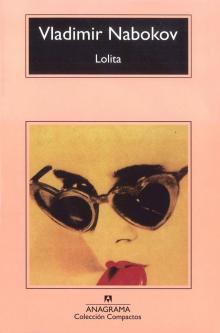 Lolita
Lolita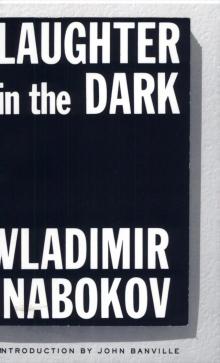 Laughter in the Dark
Laughter in the Dark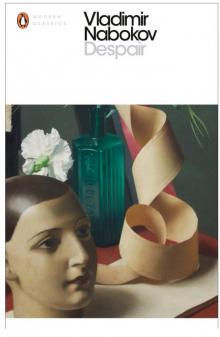 Despair
Despair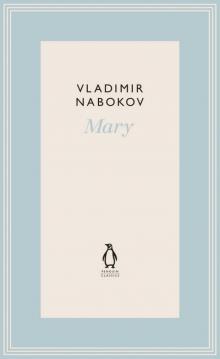 Mary
Mary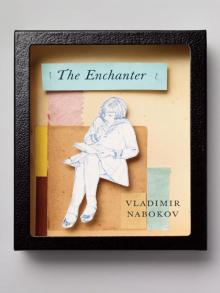 The Enchanter
The Enchanter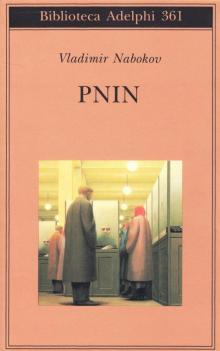 Pnin
Pnin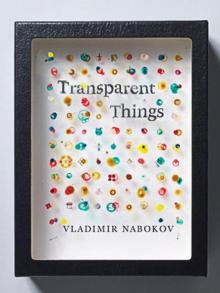 Transparent Things
Transparent Things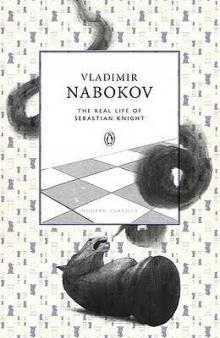 The Real Life of Sebastian Knight
The Real Life of Sebastian Knight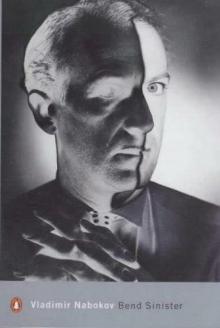 Bend Sinister
Bend Sinister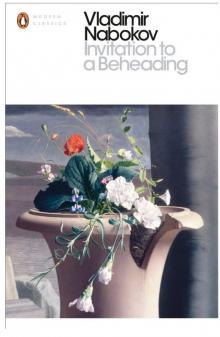 Invitation to a Beheading
Invitation to a Beheading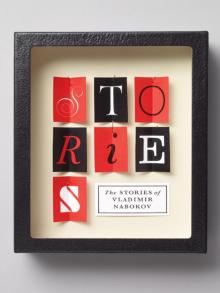 The Stories of Vladimir Nabokov
The Stories of Vladimir Nabokov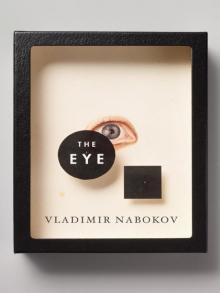 The Eye
The Eye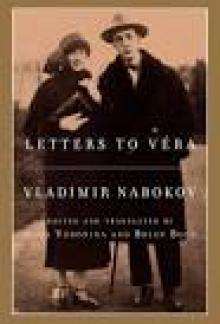 Letters to Véra
Letters to Véra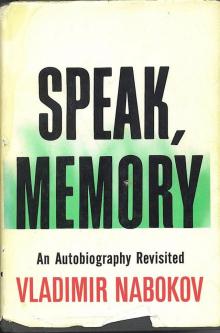 Speak, Memory
Speak, Memory The Gift
The Gift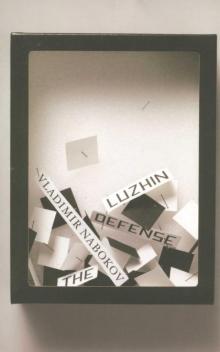 The Luzhin Defense
The Luzhin Defense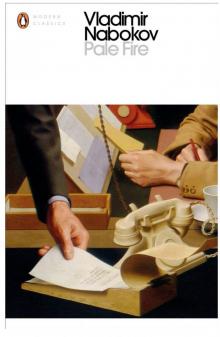 Pale Fire
Pale Fire Glory
Glory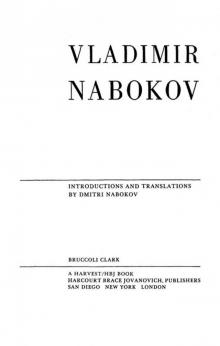 Man From the USSR & Other Plays
Man From the USSR & Other Plays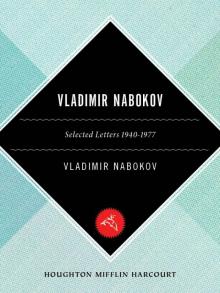 Vladimir Nabokov: Selected Letters 1940-1977
Vladimir Nabokov: Selected Letters 1940-1977 Strong opinions
Strong opinions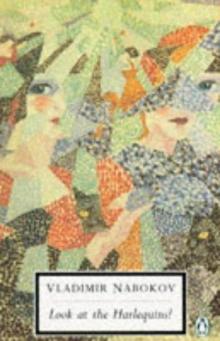 Look at the Harlequins!
Look at the Harlequins!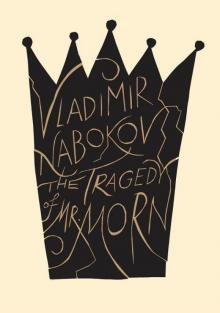 The Tragedy of Mister Morn
The Tragedy of Mister Morn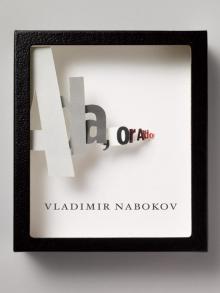 Ada, or Ardor
Ada, or Ardor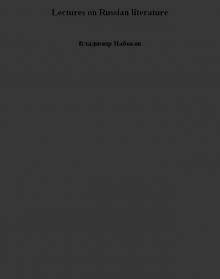 Lectures on Russian literature
Lectures on Russian literature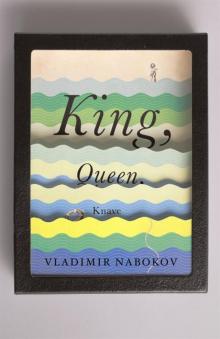 King, Queen, Knave
King, Queen, Knave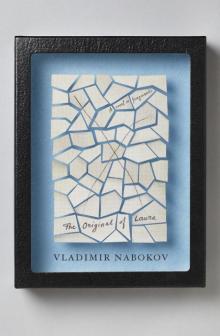 The Original of Laura
The Original of Laura